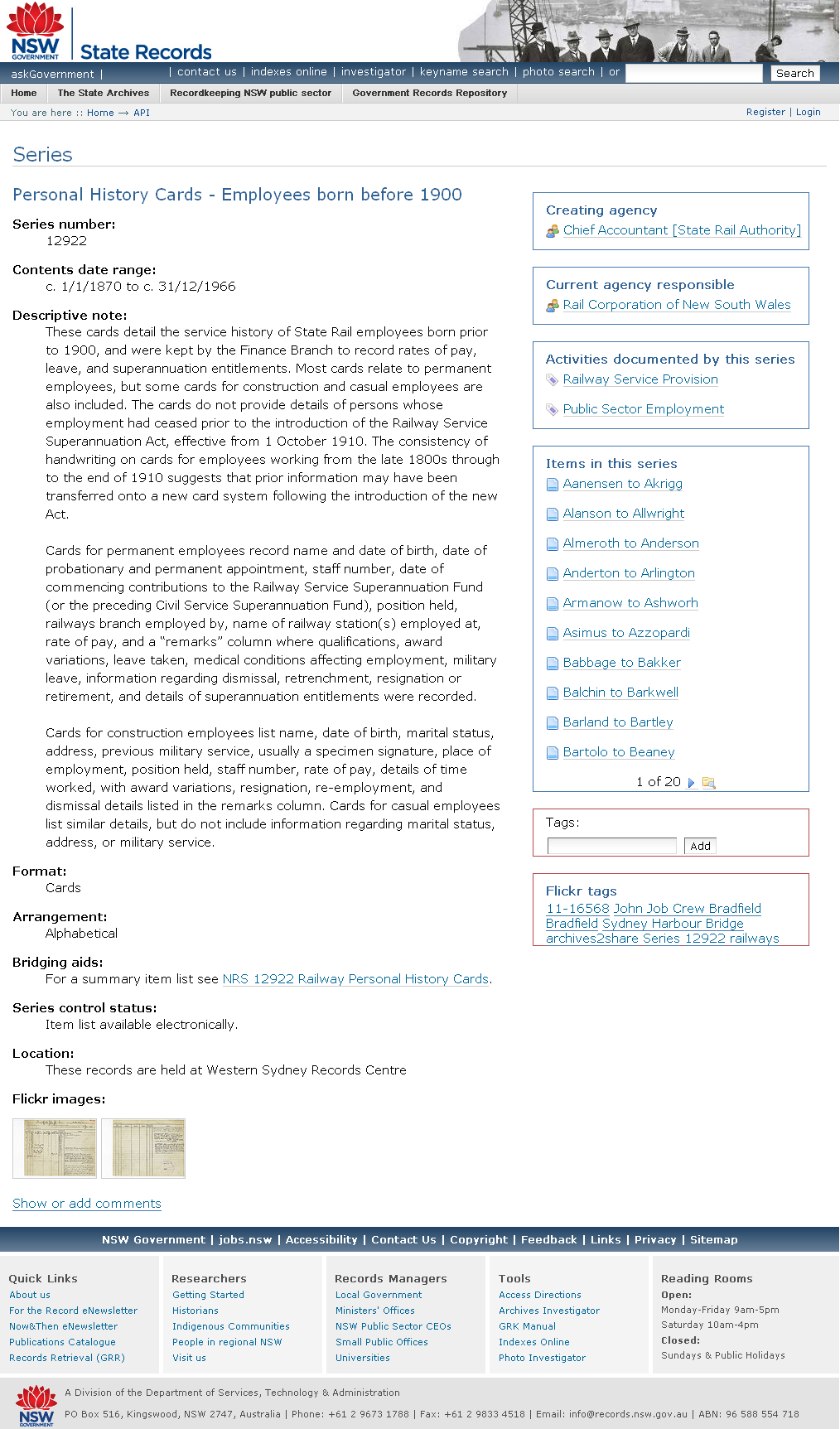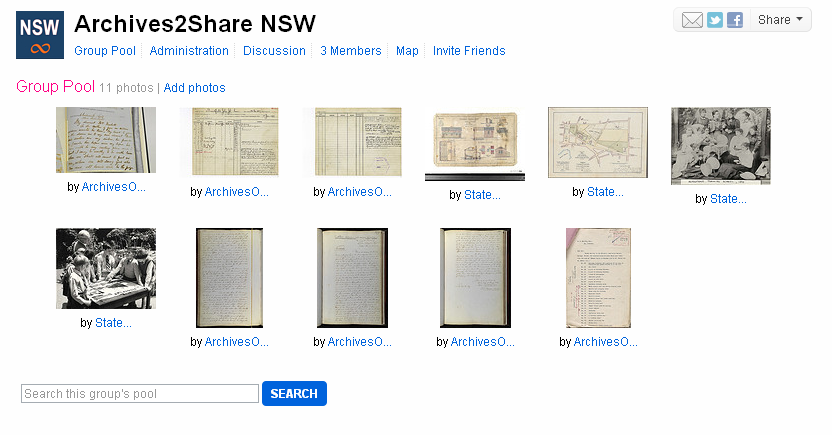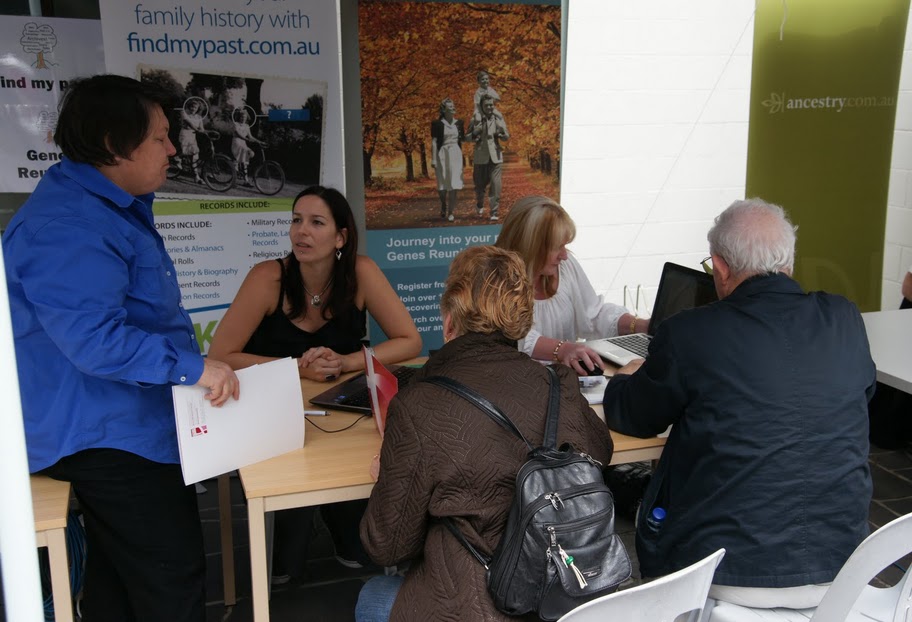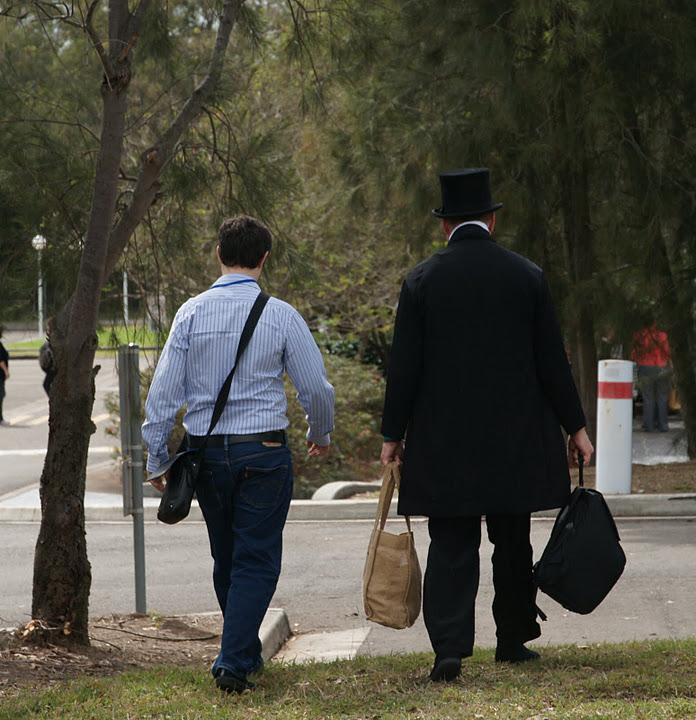Thanks to Cassie Findlay for sending this interesting presentation our way. It talks about the benefits of generous search screens/interfaces for (digital) collections.
Have you got photos of our archives that you’d like to share?
Have you visited our reading rooms to view original NSW State archives? Did you take photos of the records? Add your photos of documents from the official NSW State archives collection to our new Flickr Group called Archives2Share NSW.
We’re trying a crowdsourcing experiment, tell your friends!
The idea of this new Flickr group is to help make the State’s archives more accessible. Our aim is to make your Flickr images (of our archives) available through our new, experimental catalogue search tool. So when you search for a record series or item using the search tool then a relevant image from Flickr will be visible.
Example from the catalogue
Here is an example showing the front and back of a railway history card (see the Flickr images at the bottom of the screenshot)
Example from the Flickr group
Here are some items that Fiona and I have added to the Flickr group as examples. Notice there are a couple of photos in included that aren’t yet available in Photo Investigator – these are worthy candidates for the Flickr group.
Sound interesting?
In order to make this connection between Flickr and our search tool, we first need to find the relevant series or item in our catalogue to which the image belongs (more than likely you will have all this information on your retrieval slip).
Upload to the new Flickr group – Archives2Share – it’s not as complicated as it sounds
If you upload an image to this group, please add these special machine tags (add machine tags in the same way as ‘normal’ tags):
1. srnsw:series=[series number]
example: srnsw:series=12345
– this number is on your retrieval slip
and/or
2. srnsw:item=[item number]
example: srnsw:item=479518
– this number is obtained from the catalogue search result and not the retrieval slip. It is the number at the end of the item’s URL e.g. api.records.nsw.gov.au/items/479518
Tag your images
Please add other relevant tags as you see fit and we will also add these to our catalogue. For example, keywords like “probate”, “shipping list”, “map”, or the names of people and places will help make these images more accessible to others. If you are feeling brave, you might try adding extra machine tags (www.flickr.com/help/tags) e.g. to specify geographical coordinates or to link to a person in Trove.
We are also using a special “archives2share” tag to keep track of our progress.
But I don’t have a Flickr account and I really want to share…
Not a problem. Flickr accounts are free and you can join in a matter of minutes. Then simply upload your images to your account, tag them and add them to the Flickr group.
If you don’t wish to get a Flickr account, you can upload your images via our contact form here on the blog (note: you can only add one image at a time).
Acceptable items to add
There is a general 30 year closure period for all records. Due to the sensitive information contained in some series of records the closure period is longer. Basically, if you view the archive in the reading room (without needing a letter of permission granting you special access) then you can add it to the group.
Feedback
This is a new area for us and we hope to share our progress with you in the Discussions area of the Flickr group. We also look forward to your suggestions and feedback.
What you have been looking at in 2011?
I was looking through some of our blog stats the other week and thought I’d share some of them; a Top 10 of Archives Outside, if you like. These stats show what has been the most viewed, the most searched for items and a little bit about you.
Not surprisingly posts/pages/searches relating to Underbelly: Razor featured quite high. What is surprising is the sustained interest in our pages/posts relating to Tilly Devine and co.
What have you been looking at?
- Did you watch #Underbelly #Razor last night? Check out some real life mugshots of the razor gangs
- Archives Outside homepage
- Collections in NSW – view posts in this Category
- What are your tips for dating photos?
- Take a walk through the streets of Sydney during #underbelly #razor
- Conservation Tip 5: removing mould from records and archives
- Moments in Time – tag
- Can you date this photo [unidentified coastal residential landscape]?
- Regional Archives Centres – view page
- Archives Made Easy – view posts in this Category.
Top Moments in Time [can you date this photo?]
- By leaps and bounds the most popular Moment in Time was the view of an unidentified residential landscape. It didn’t take you long to determine it was Newcastle looking towards Flagstaff Hill and Newcastle Beach (could have been the virtual chocolates) but it still had the most views and comments all year.
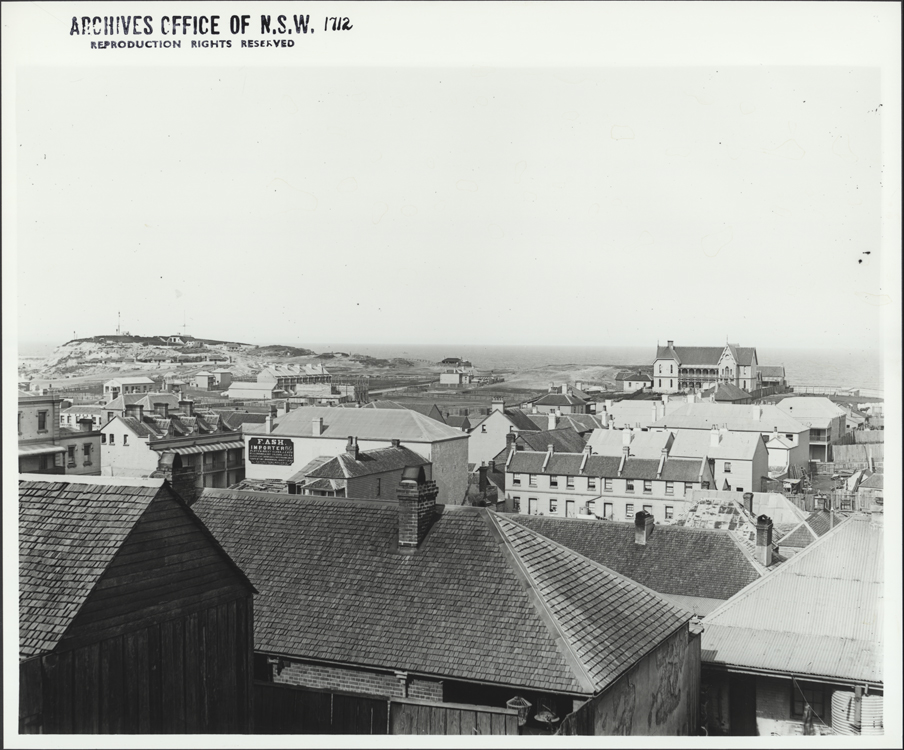
- The roadworks on a Sydney street asked three questions: what street is it, what time period is it, and for what purpose is the work being done. It was impressively narrowed down to the exact date: King Street, 4 April 1900 during the plague cleanup.
- Lands Department Building, Sydney
- Bronte Beach, Sydney
- Wedding Procession, Comboyne District
- Hyde Park, Sydney
- Bondi Beach, Sydney
- Circular Quay, Sydney
- Hamilton Railway Station
- Wagga Wagga Council Chambers.
How did you get here?
Sifting past the Underbelly: Razor searches and the term “Archives Outside” the most keywords that got you to the blog were:
- Wayne Doubleday regional repository
- Captain Moonlight
- Social Media Strategy
- How to remove blood from paper
- Map of NSW/NSW Maps online
- WANS
- University of Wollongong
- UNERA
- Crowdsourcing archives
- Ralph Snowball.
And lastly…are you local?
Visitors came from far and wide with the majority from Australia:
- Australia – 73.80%
- United States – 9.15%
- United Kingdom – 3.14%
- Other countries: Singapore; Canada; New Zealand; France; Netherlands; Germany; Philippines.
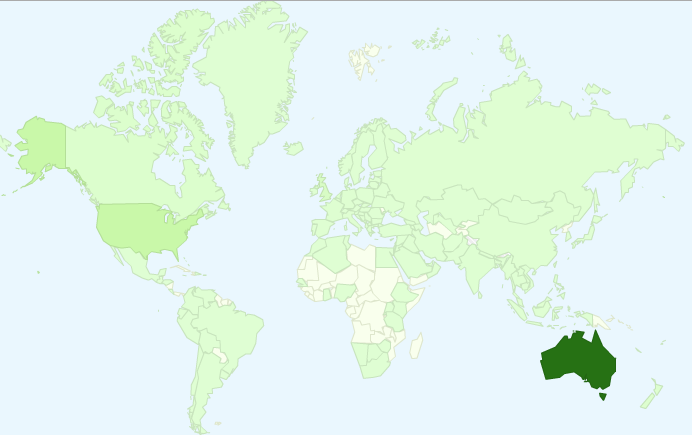
Here’s to a bigger and better year next year! What have your highlights been here on the blog? We’d love to know.
New grant program “Your Community Heritage”
Thanks to our Senior Conservator, Elizabeth Hadlow, for bringing this to our attention.
Your Community Heritage is a new approach to supporting and protecting Australia’s heritage that will enable local communities around Australia to celebrate their local heritage.
The program recognises that our heritage is not just about ‘big’ heritage such as places on the World and National Heritage Lists, it is also about the heritage of individual communities, be they in regional Australia or small towns or in dispersed multicultural communities. Your Community Heritage is about broadening our understanding and support of heritage and the organisations, individuals, volunteers and communities, who protect and manage so many of our unique heritage places and stories.
Your Community Heritage will promote the importance of heritage to the community and its role in bringing people together, creating community identity and a sense of pride.
Applications close 20 December 2011.
Details of the program are available through the Department of Sustainability, Environment, Water, Population and Communities
Tips for dating old photos – updated list (2011)
After Fiona and I presented a brief talk at our Open Day using your tips for dating photos, we promised to put the new list of tips up on the blog. And here ’tis!
This is the handout that accompanied our talk (updated from the original version back in June 2010). I’m sure a version three will appear in the future as your tips keep coming in.
Happy dating!
Tips for dating photos – October 2011 (PDF, 436kb)
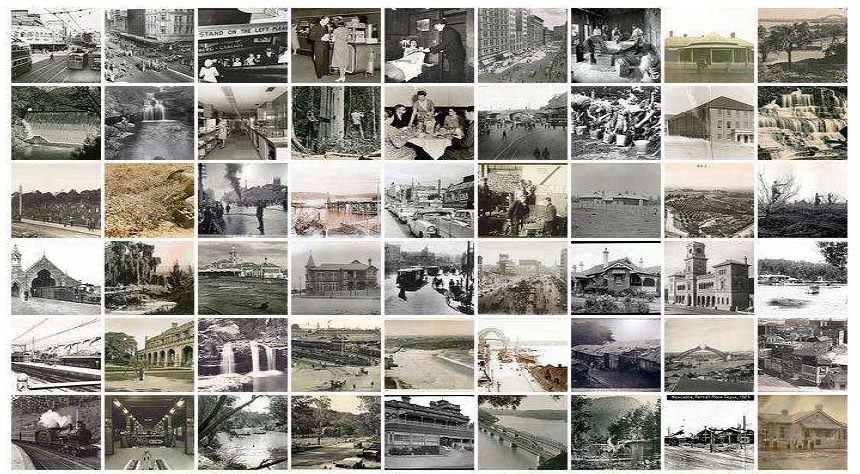
Hello there! It’s World Hello Day
November 21, 2011 is the 39th annual World Hello Day. Anyone can participate in World Hello Day simply by greeting ten people. This demonstrates the importance of personal communication for preserving peace.
worldhelloday.org
So…Bonjour! Ciao! Guten Tag! Hola! Running out of languages here, what can you add?
And to all you lurkers out there, come and say “Hi”.
Breathing life into history with #LODLAM
We stumbled across another interesting SlideShare presentation about LODLAM called “Bringing History Alive: Telling stories with Linked Data and open source tools”. It’s by David Peterson – Semantic Web Story Teller, on Twitter @davidseth
LODLAM = Linked Open Data in Libraries, Archives, and Museums
DigiMan goes Arctic in his quest to understand preservation planning [video]
Digiman is baby sitting his niece and nephew for the weekend, but things go horribly wrong when he sends them out on an arctic mountain adventure. Never fear trusty viewers PLATO, the Planets Preservation Planning tool, comes to the rescue showing Digiman the error of his ways.
Thanks for coming to Open Day #srnswopenday
How wonderful it was to meet Archives Outside readers in person at our Open Day last Friday! I got a few autographs on my copy of the Moments in Time book which I’m very chuffed about.
It was a huge day, final visitor figures haven’t yet been calculated but the estimate is that 300+ people trooped through our gates to see what we do, usually behind closed doors.
A big thankyou to all our guest speakers who really made the day special. Fiona and I enjoyed presenting our session on dating old photos and kudos to Bill Oates and Mick Reed who demonstrated the dating photos using shadows technique.
The day’s program was massive with tours heading off every half hour; a full day of various talks and seminars; conservation working bees; digitisation workshops, and; conservation clinics where our conservators advised people on how best to keep their family records. There was also a couple of family history stalls, a prize draw, some accordion playing and a sausage sizzle.
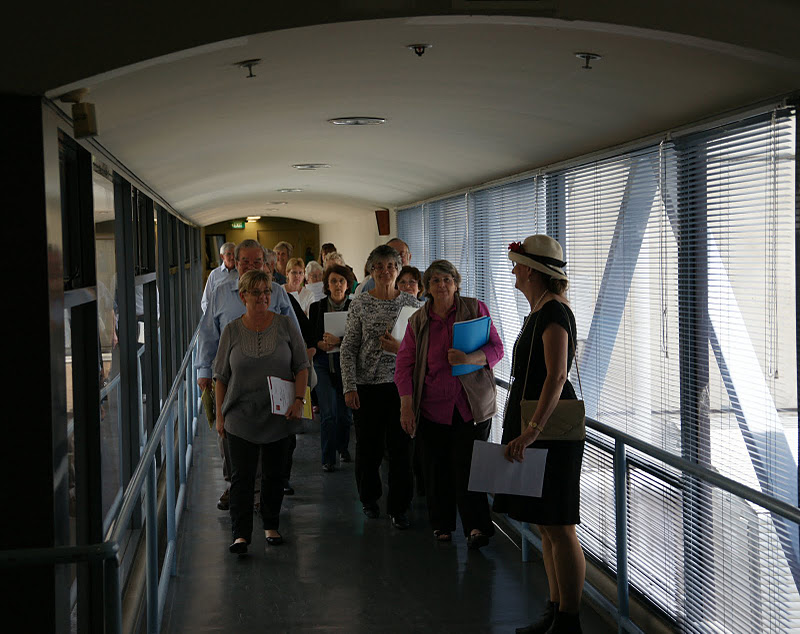
Tours ran every half an hour. Archivist Janette Pelosi was one of the tour guides. Photo by Alan Ventress
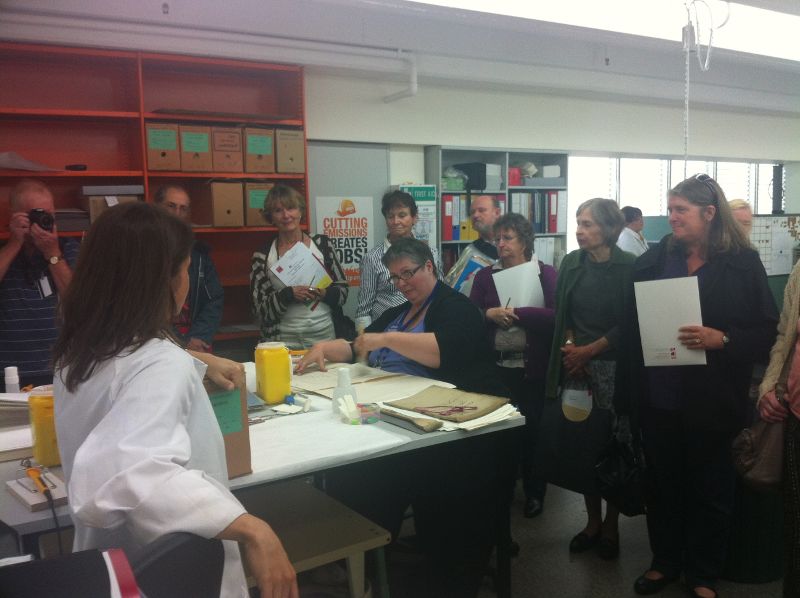
Tour groups stopped by conservation to see the work being done in preserving the State's heritage. Photo by Fiona Sullivan
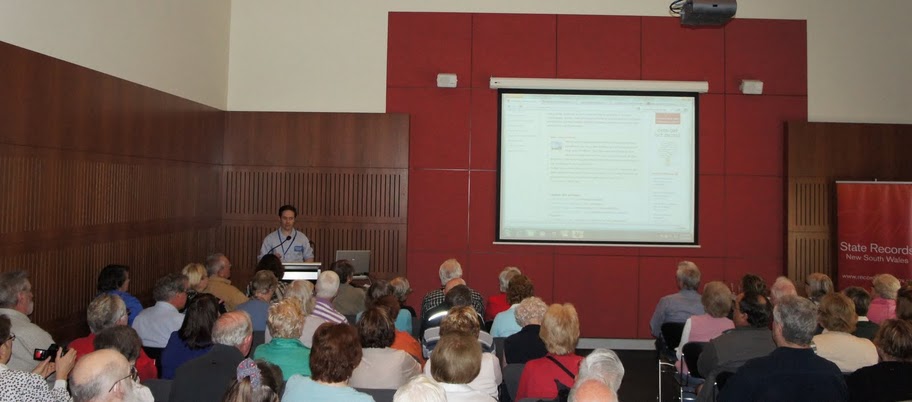
Talks were filled to capacity. This is the session by Richard Lehane. Photo by Alan Ventress
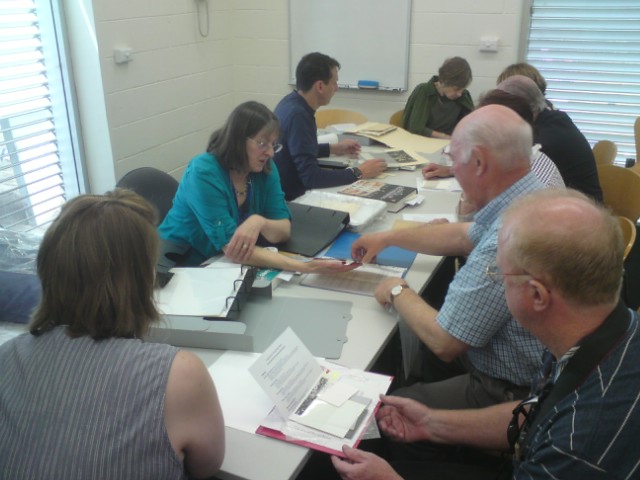
One of the Conservation Clinics. People were able to bring in some of their own family records and received face-to-face advice from our conservators on the best way to preserve them. Photo by Paul Elliott
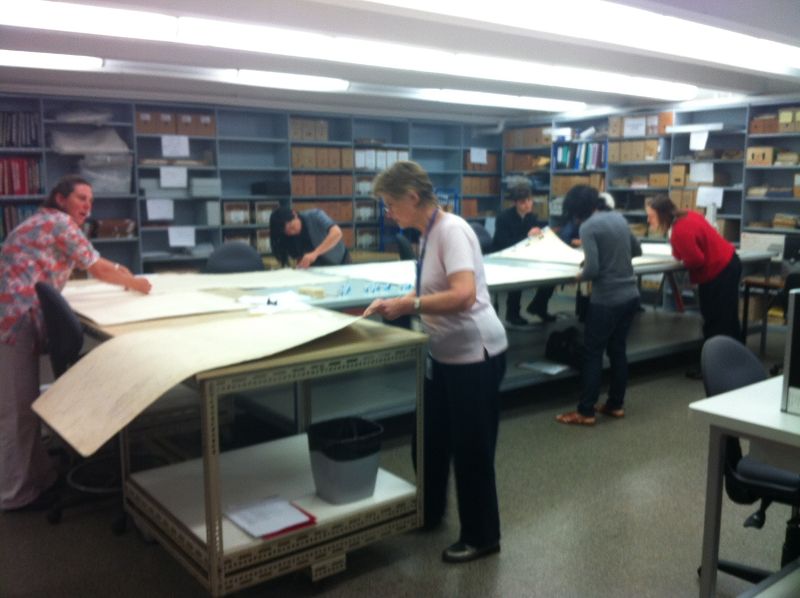
There was the opportunity to join a conservation working bee and have hands-on experience working with archives. Photo by Fiona Sullivan
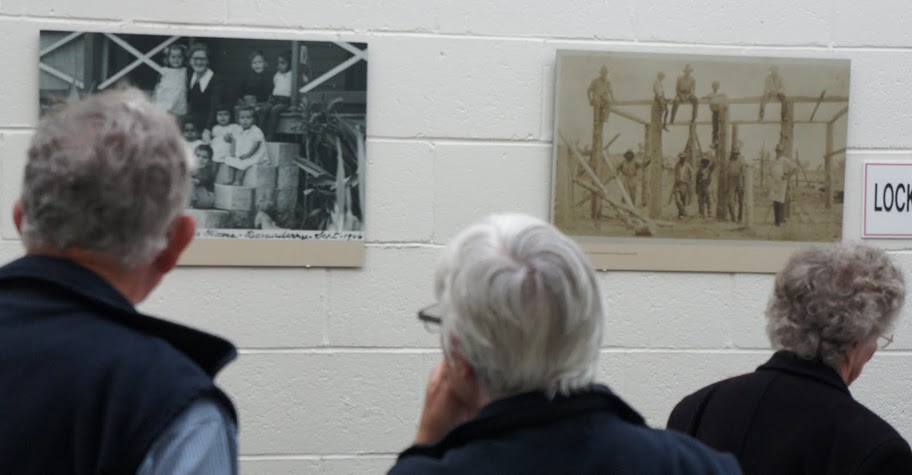
In Living Memory touring exhibition. Photo by Alan Ventress
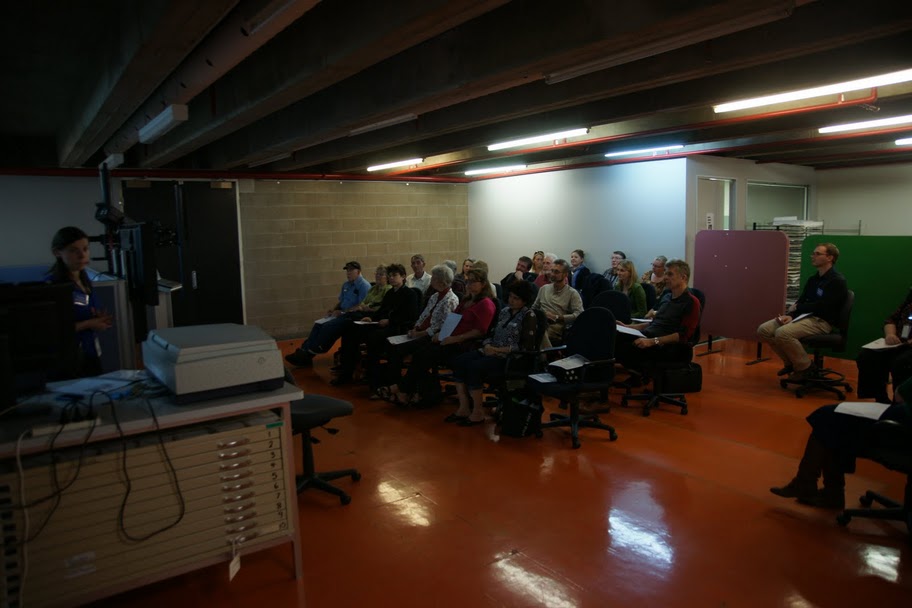
The digitisation workshops run by our photographer Tara Majoor were very popular. Photo by Alan Ventress
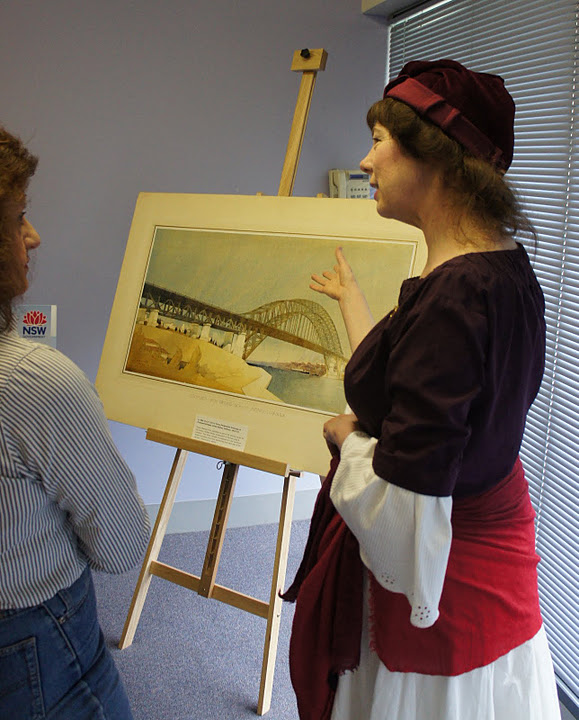
The Board Room housed treasures from the collection. Here is archivist Gail Davis, in period costume. Photo by Alan Ventress
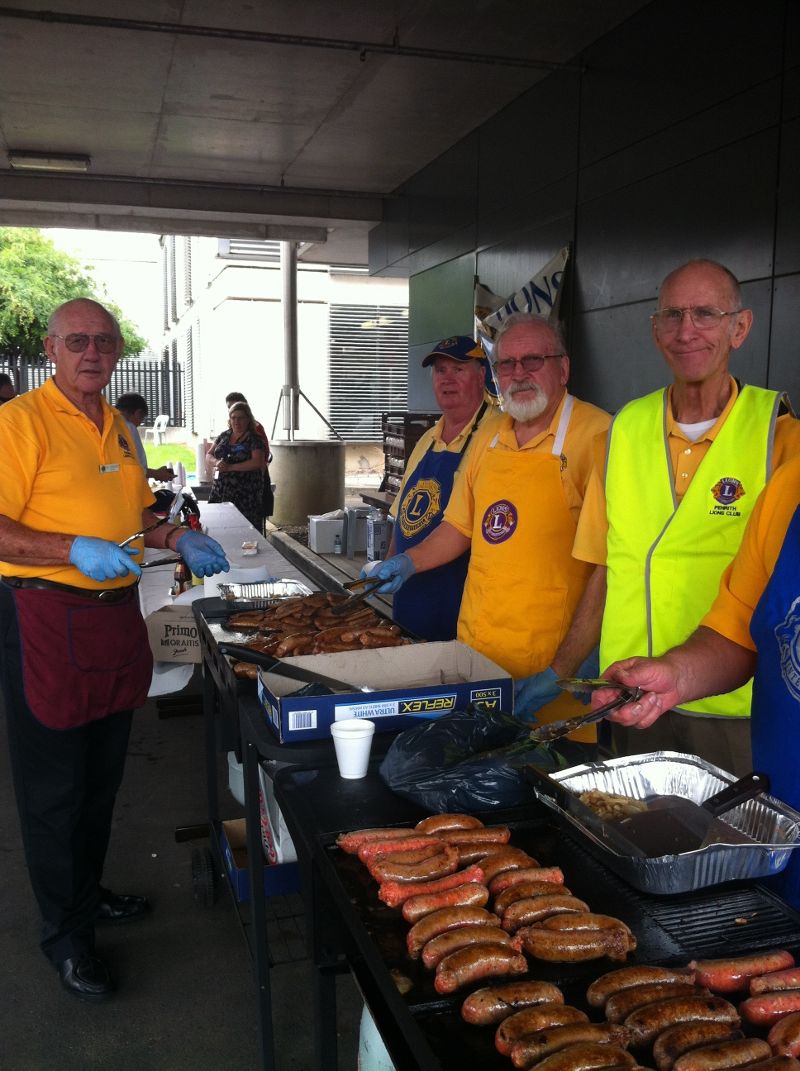
The Lions Club put on a terrific sausage sizzle. Photo by Fiona Sullivan
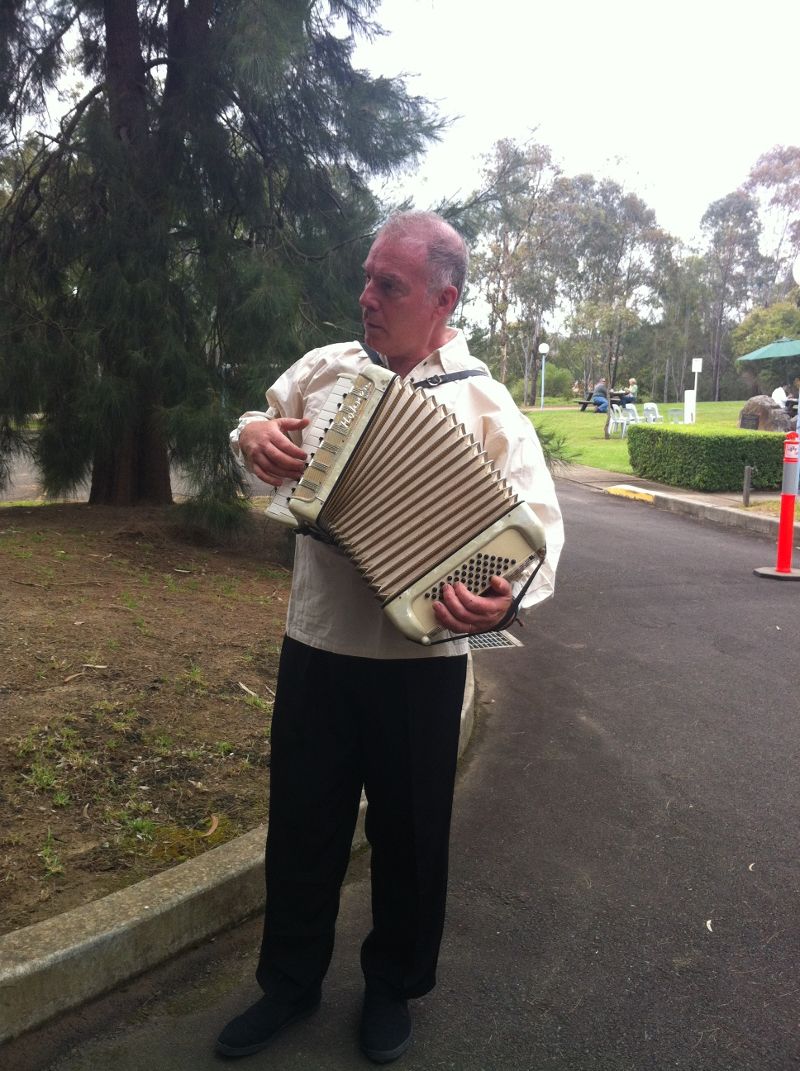
Some entertainment over lunch from archivist and accordion player Fabian LoSchiavo. . Photo by Fiona Sullivan

